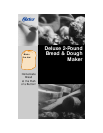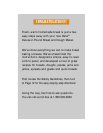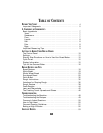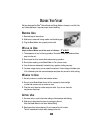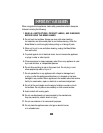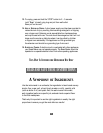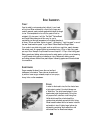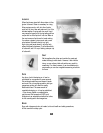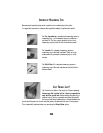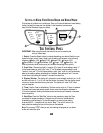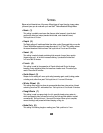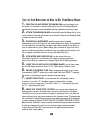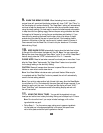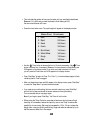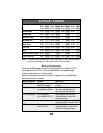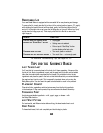
7
BASIC INGREDIENTS
YEAST
Yeast is actually a microscopic plant; without it, your bread
will not rise. When moistened by a liquid, fed by sugar and
carefully warmed, yeast produces gases which cause the dough
to rise. If the temperature is too cold, the yeast will not be
activated; if it’s too warm, it will die. The Oster
®
Deluxe Bread
and Dough Maker takes care of this worry for you by
maintaining just the right temperature in the baking chamber at
all times. You can use either “active dry yeast,” “quick acting,” “rapid rise yeast” or one of
the new “bread machine yeasts” in your Oster
®
Deluxe Bread and Dough Maker.
If you prefer to use a fast-rising yeast, such as quick rise or rapid rise, merely decrease
the amount used. As a general guide, we recommend using 1/2 tsp. of fast-rising yeast
per cup of flour. Example: 3 cups bread flour would require 1-1/2 tsp. of fast-rising yeast.
Baking powder and baking soda may be used to assist yeast or on their own as leavening
in quick breads which require no kneading or rising. Recipes with baking powder
and baking soda are different than yeast recipes. Leavening agents cannot be substituted
for one another.
S
WEETENERS
Sugars sweeten the bread, brown the crust and lend
tenderness to the texture. These jobs can be performed
by white or brown sugar, molasses, maple or corn syrups,
honey, fruits or other sweeteners.
FLOUR
In order for the bread to rise, the flour has to have
a high protein content. You should always use
a “bread flour” (for white bread recipes) in your
bread maker to get the best results. Do not use
all-purpose flour, cake flour or self-rising flour.
Unlike white bread flour, whole wheat flour
contains bran and wheat germ which inhibit rising.
Wheat breads therefore tend to be heavier in texture
and smaller in size. A lighter, larger loaf can be
achieved by combining whole wheat flour with
white bread flour for wheat bread recipes.



